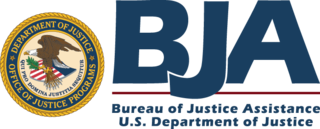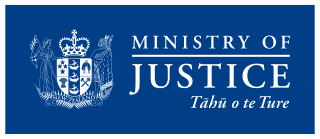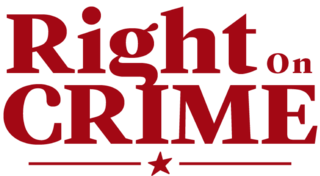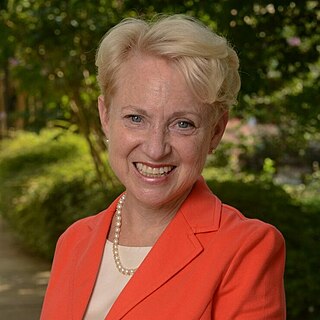Related Research Articles
The National Policing Institute, formerly known as the Police Foundation, is an American non-profit organization dedicated to advancing policing through innovation and independent scientific research. It is headquartered in Arlington, Virginia.
Public Safety Canada, legally incorporated as the Department of Public Safety and Emergency Preparedness (PSEPC), is the department of the Government of Canada responsible for (most) matters of public safety, emergency management, national security, and emergency preparedness in Canada.
The Aspen Institute is an international nonprofit organization founded in 1949 as the Aspen Institute for Humanistic Studies. The institute is headquartered in Washington, D.C. It also has campuses in Aspen, Colorado, its original home.

The Pew Charitable Trusts is an independent non-profit, non-governmental organization (NGO), founded in 1948.

The Columbus Division of Police (CPD) is the primary law enforcement agency for the city of Columbus, Ohio, in the United States. It is the largest police department in Ohio, and among the twenty-five largest in the United States. It is composed of twenty precincts and numerous other investigative and support units. Chief Elaine Bryant assumed leadership of the Division in 2021. Special units of the Columbus Division of Police include a Helicopter Unit, Canine Unit, Mounted Unit, Community Response Teams, Marine Park Unit, and Special Weapons and Tactics Team (SWAT).

The Bureau of Justice Assistance (BJA) is a component of the Office of Justice Programs, within the United States Department of Justice. BJA provides leadership and assistance to local criminal justice programs that improve and reinforce the nation's criminal justice system.

Gun violence is a term of political, economic and sociological interest referring to the tens of thousands of annual firearms-related deaths and injuries occurring in the United States. In 2022, up to 100 daily fatalities and hundreds of daily injuries were attributable to gun violence in the United States. In 2018, the most recent year for which data are available, the Centers for Disease Control and Prevention's (CDC) National Center for Health Statistics reported 38,390 deaths by firearm, of which 24,432 were suicides. The national rate of firearm deaths rose from 10.3 people for every 100,000 in 1999 to 11.9 people per 100,000 in 2018, equating to over 109 daily deaths. In 2010, there were 19,392 firearm-related suicides, and 11,078 firearm-related homicides in the U.S. In 2010, 358 murders were reported involving a rifle while 6,009 were reported involving a handgun; another 1,939 were reported with an unspecified type of firearm. In 2011, a total of 478,400 fatal and nonfatal violent crimes were committed with a firearm.
Crime in Chicago has been tracked by the Chicago Police Department's Bureau of Records since the beginning of the 20th century. The city's overall crime rate, especially the violent crime rate, is higher than the US average. Gangs in Chicago have a role in the city's crime rate. The number of homicides in Chicago hit a 25-year high in 2021.

The Ministry of Justice is an executive department of the New Zealand Government, responsible for supporting the judiciary and the administration of justice within New Zealand. It develops justice policy and provides advice to ministers, Cabinet, and other justice sector agencies. Its main functions are to help reduce crime and build safer communities; increase trust in the justice system; and maintain the integrity of New Zealand's constitutional arrangements.
Clarence O'Neal Bradford, known as C.O. "Clarence" Bradford, is a Houston City Council member, a former chief of police of Houston, Texas, and in 2008 an unsuccessful Democratic Party candidate for District Attorney of Harris County, Texas. On November 3, 2009, Bradford was elected to the Houston City Council from At-large Position 4 and took office January 2, 2010. In the 2011 election, Bradford won a second term as a Houston City Councilmember.
Patrick Vincent Murphy served as the top law enforcement executive in New York City, Detroit, Washington, DC, and Syracuse, NY. He created the Police Executive Research Forum, an organization of police executives from the nation's largest city, county, and state law enforcement agencies, and led the Police Foundation in a period when it published pivotal reports on issues ranging from the police use of deadly force to the efficient use of patrol resources. Murphy's "long-range impact on American policing nationally probably will be judged by students of police history as significant as that of August Vollmer or J. Edgar Hoover," the FBI's Law Enforcement Bulletin commented in a 1986 cover story on the Police Foundation.

Right On Crime is an American conservative criminal justice reform initiative in the U.S. that aims to gain support for criminal justice reform by sharing research and policy ideas, mobilizing leaders, and raising public awareness. Right On Crime reforms are focused on "reducing crime, restoring victims, reforming offenders, and lowering taxpayers' costs." The initiative primarily focuses on nine issues: prosecutorial innovation, correctional leadership, over-criminalization, civil asset forfeiture, juvenile justice, adult probation, parole and re-entry, law enforcement, and victims' rights. Right On Crime is a campaign of the Texas Public Policy Foundation, a conservative think tank. After its founding in Texas, Right On Crime has contributed to many criminal justice reforms in over 38 states, working with bipartisan partners throughout the country.
Jerry Lee is a noted crime prevention philanthropist, proponent of evidence-based policy-making, and the former owner of the Philadelphia radio station WBEB-FM 101.1. Currently he is working on promoting the effectiveness of radio commercials, owns SpotQ Services, Inc., is the President of the Jerry Lee Foundation, and is involved in continuing to encourage the adoption of evidence-based criminology.

Valerie Jenness is an author, researcher, public policy advisor, and professor in the Department of Criminology, Law and Society and in the Department of Sociology at the University of California, Irvine (UCI). Jenness is currently a visiting professor in the Department of Sociology at the University of California, Santa Barbara (UCSB) and prior to that, was a senior visiting scholar at the Institute for Research on Women and Gender at the University of Michigan. Jenness served as dean of the School of Social Ecology from 2009 to 2015 and chair of the Department of Criminology, Law and Society from 2001-2006. Jenness is credited with conducting the first systemic study of transgender women in men's prisons.
The Barack Obama Foundation is a Chicago-based nonprofit organization founded in 2014. It oversees the creation of the Barack Obama Presidential Center, runs the My Brother's Keeper Alliance, and operates a scholarship program through the University of Chicago's Harris School of Public Policy.
The Pritzker School of Molecular Engineering (PME) is the first school of engineering at the University of Chicago. It was founded as the Institute for Molecular Engineering in 2011 by the university in partnership with Argonne National Laboratory. When the program was raised to the status of a school in 2019, it became the first school dedicated to molecular engineering in the United States. It is named for a major benefactor, the Pritzker Foundation.

In the United States, "defund the police" is a slogan that supports removing funds from police departments and reallocating them to non-policing forms of public safety and community support, such as social services, youth services, housing, education, healthcare and other community resources. Activists who use the phrase may do so with varying intentions; some seek modest reductions, while others argue for full divestment as a step toward the abolition of contemporary police services. Activists who support the defunding of police departments often argue that investing in community programs could provide a better crime deterrent for communities; funds would go toward addressing social issues, like poverty, homelessness, and mental disorders. Police abolitionists call for replacing existing police forces with other systems of public safety, like housing, employment, community health, education, and other programs.

Charles and Lynn Schusterman Family Philanthropies is a philanthropic organization founded in 1987 in Tulsa, Oklahoma.

Laurie Robinson is an American scholar and public servant who has held multiple positions across government, academia, and the nonprofit sector. Robinson's most notable roles include serving as Assistant Attorney General in charge of the U.S. Department of Justice Office of Justice Programs under former Presidents Bill Clinton and Barack Obama, and co-chairing Obama's Task Force on 21st Century Policing. She also served on the congressionally created Charles Colson Task Force on Federal Corrections and on an independent commission that explored the potential closure of New York City's Rikers Island jail complex. Most recently, Robinson served as founding Chair of the Board of Directors of the Council on Criminal Justice, a nonpartisan policy and research organization.
Olayemi Olurin is a Bahamian-Nigerian lawyer, political commentator, writer, and abolitionist thinker. Olurin also hosts a YouTube show, "Olurinatti The Show," and a podcast, "Olay & Friends." She contributes to outlets like Teen Vogue and maintains her own Substack, "Olurinatti," where she writes about socio-political issues.
References
- ↑ "About Us". University of Chicago Crime Lab. Retrieved 2024-05-02.
- ↑ "Office of Public Affairs | Readout of Associate Attorney General Vanita Gupta's Trip to Chicago | United States Department of Justice". www.justice.gov. 2023-06-12. Retrieved 2024-05-02.
- ↑ Adedokun, Solana. "UChicago Crime Lab: Friend or Foe?". Chicago Maroon. Retrieved 2024-05-02.
- ↑ "University of Chicago Crime Lab Launches Community Safety Leadership Academies". The University of Chicago Harris School of Public Policy. 2024-02-20. Retrieved 2024-02-19.
- ↑ "University of Chicago Crime Lab receives $27.5 million". Philanthropy News Digest. 13 May 2022. Retrieved 17 May 2022.